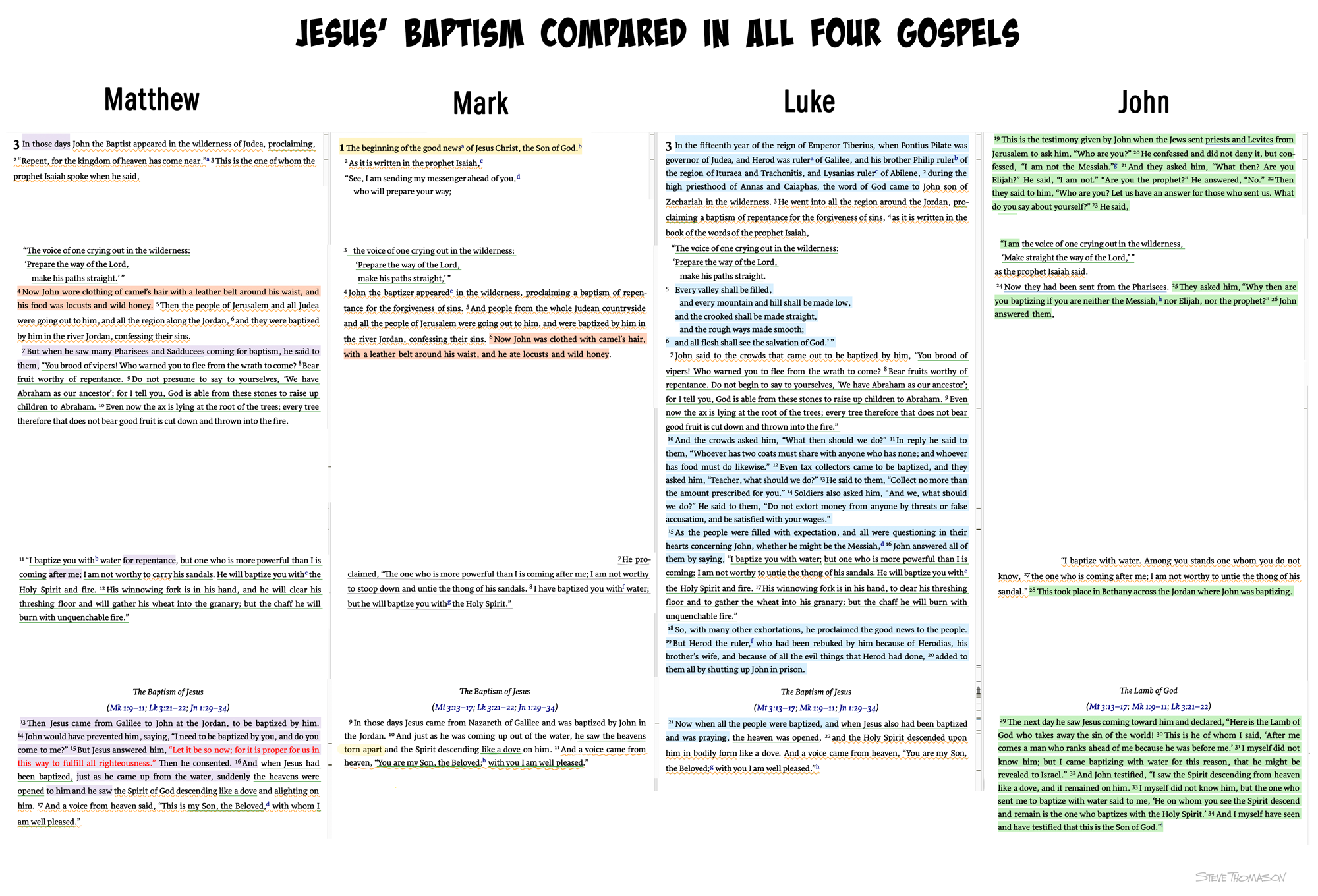Matthew 3:1-4:11
Page 3
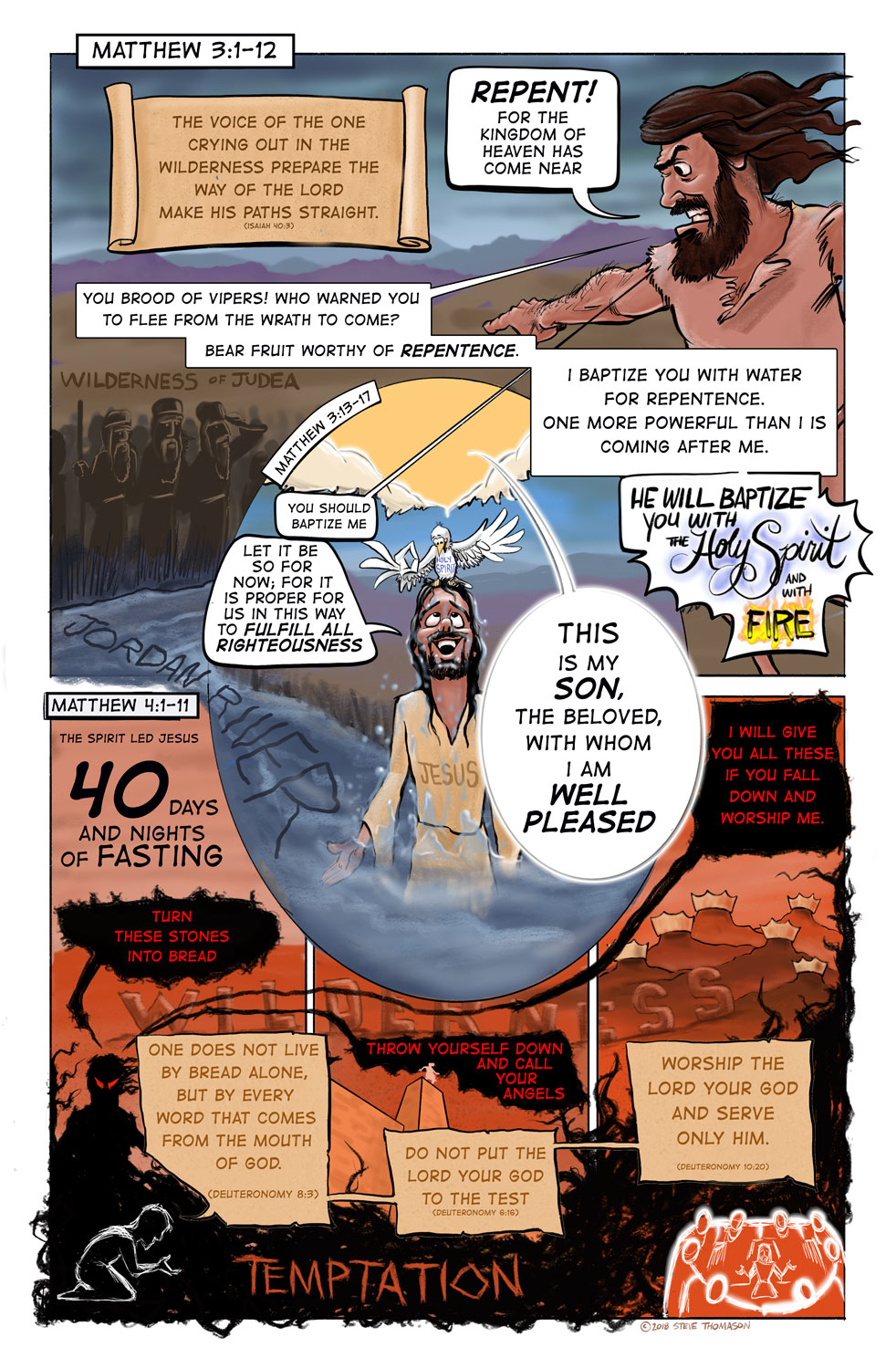
Preview the PowerPoint
Visual Commentary
Text Compared
Matthew 3:1-12
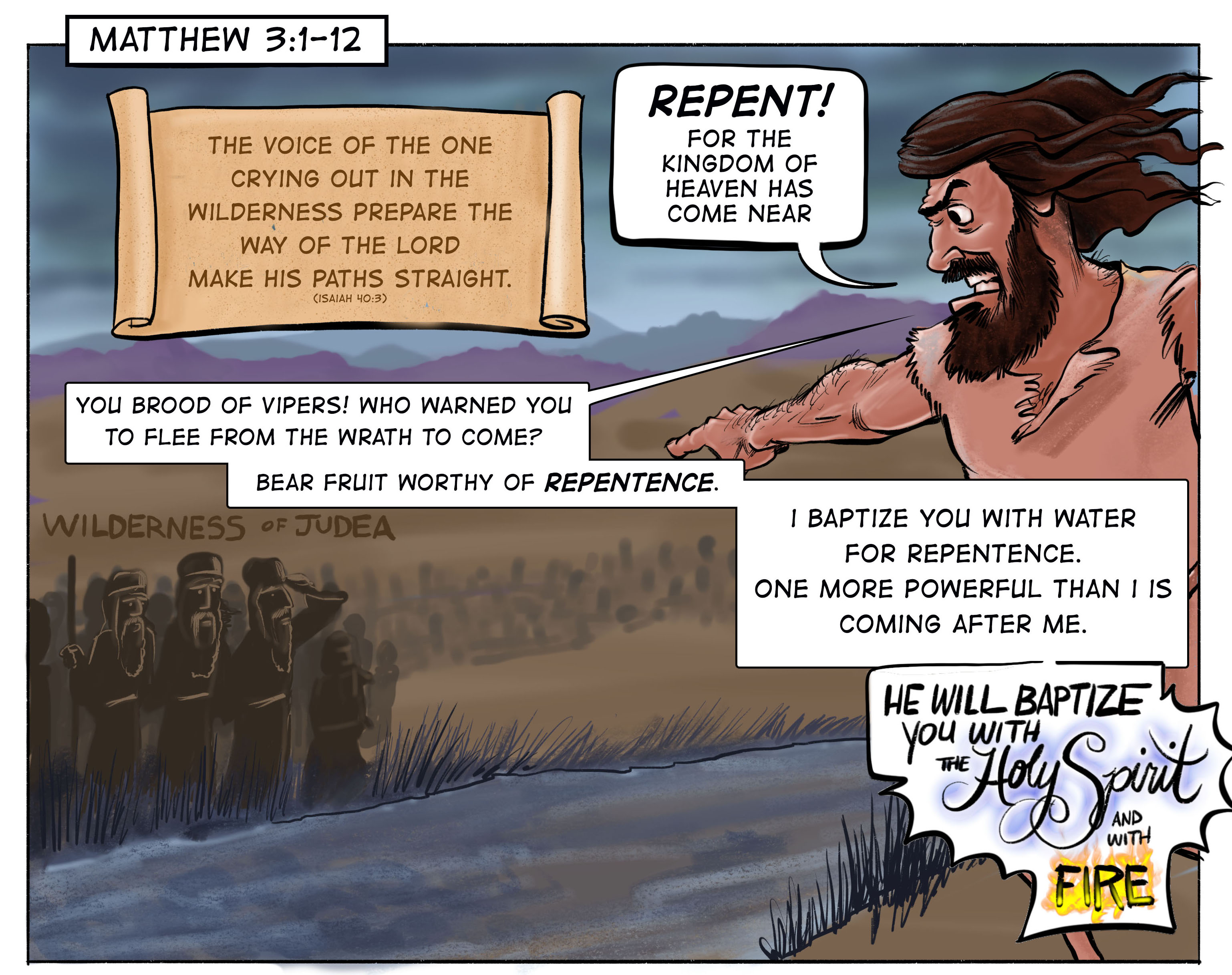
These images offer a breakdown of John’s exchange with the Pharisees.

The word repent is the Greek word metanoia. It means to change one’s perspective. We can only see the Kingdom of Heaven if we have eyes to see it and ears to hear it. It is at hand. It is the way of God in the world, and always has been. That is what Jesus will demonstrate. John is paving the way and speaking in the language and style of the Hebrew prophets.

It seems that the people were ready for a change. Baptism by water was a Jewish practice of renewal. It was not a one-time event, but a ritual of purification.

The religious leaders claimed that it was their lineage from Abraham that made them righteous before God. This ethnic identity allowed them to draw hard boundaries between the Jews and the Gentile. This would be one of the key sticking points for the first church.

The original promise to Abraham was that God would bless his offspring to be a blessing to all nations, not to cut all nations off from God. John borrows a common image of Israel as a vineyard. The vineyard was planted to bear the fruit of God’s blessing to all nations. Vines that don’t bear fruit are dead wood and only useful to fuel the fire.

Jesus has come to prune the vineyard. The fire of truth will burn away the chaff and the water of the Spirit will cleanse, refresh, and empower the people to bear God’s fruit in the world.
Matthew 3:13-17
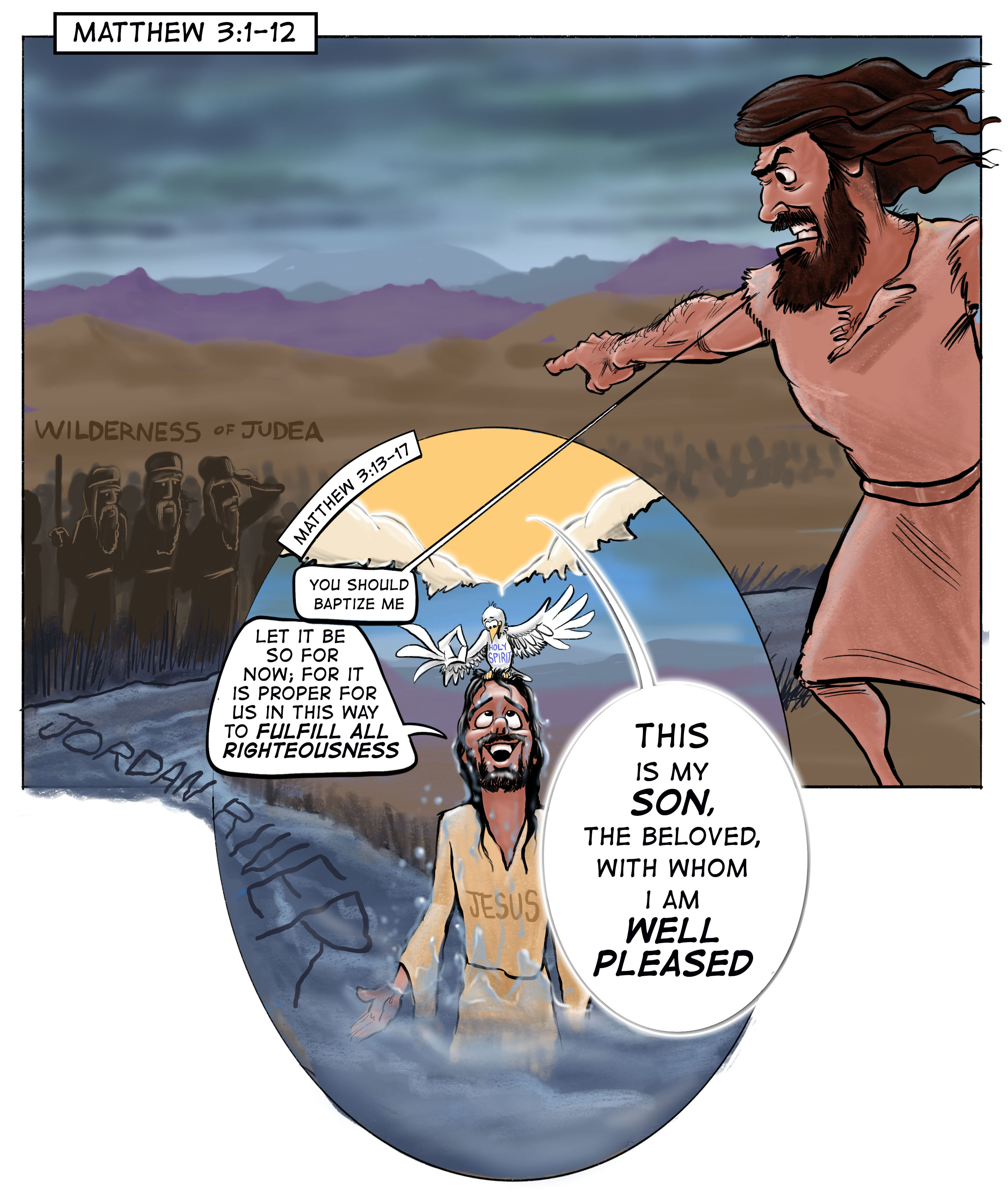 John shows his humility and acknowledges that Jesus is the promised one. Yet, Jesus submits to baptism. This is his anointing as the King.
John shows his humility and acknowledges that Jesus is the promised one. Yet, Jesus submits to baptism. This is his anointing as the King.  Here we see three persons. The first is the voice of God declaring Jesus to be the beloved son. This voice is revealed from behind skies that are opened. This is the transcendent God. The second is the physical human Jesus who is declared the Beloved Son of God. The third is the Spirit of God who Jesus’ sees as a dove that descends upon him. This is the first of many places in which the Divine is rendered in three distinct entities. It is from passages like this that the doctrine of the Trinity–One God in three persons–was officially developed in the Church.
Here we see three persons. The first is the voice of God declaring Jesus to be the beloved son. This voice is revealed from behind skies that are opened. This is the transcendent God. The second is the physical human Jesus who is declared the Beloved Son of God. The third is the Spirit of God who Jesus’ sees as a dove that descends upon him. This is the first of many places in which the Divine is rendered in three distinct entities. It is from passages like this that the doctrine of the Trinity–One God in three persons–was officially developed in the Church.

Four Devos from Matthew 3:1-17
Matthew 4:1-11
Jesus is Tempted in the Wildnerness
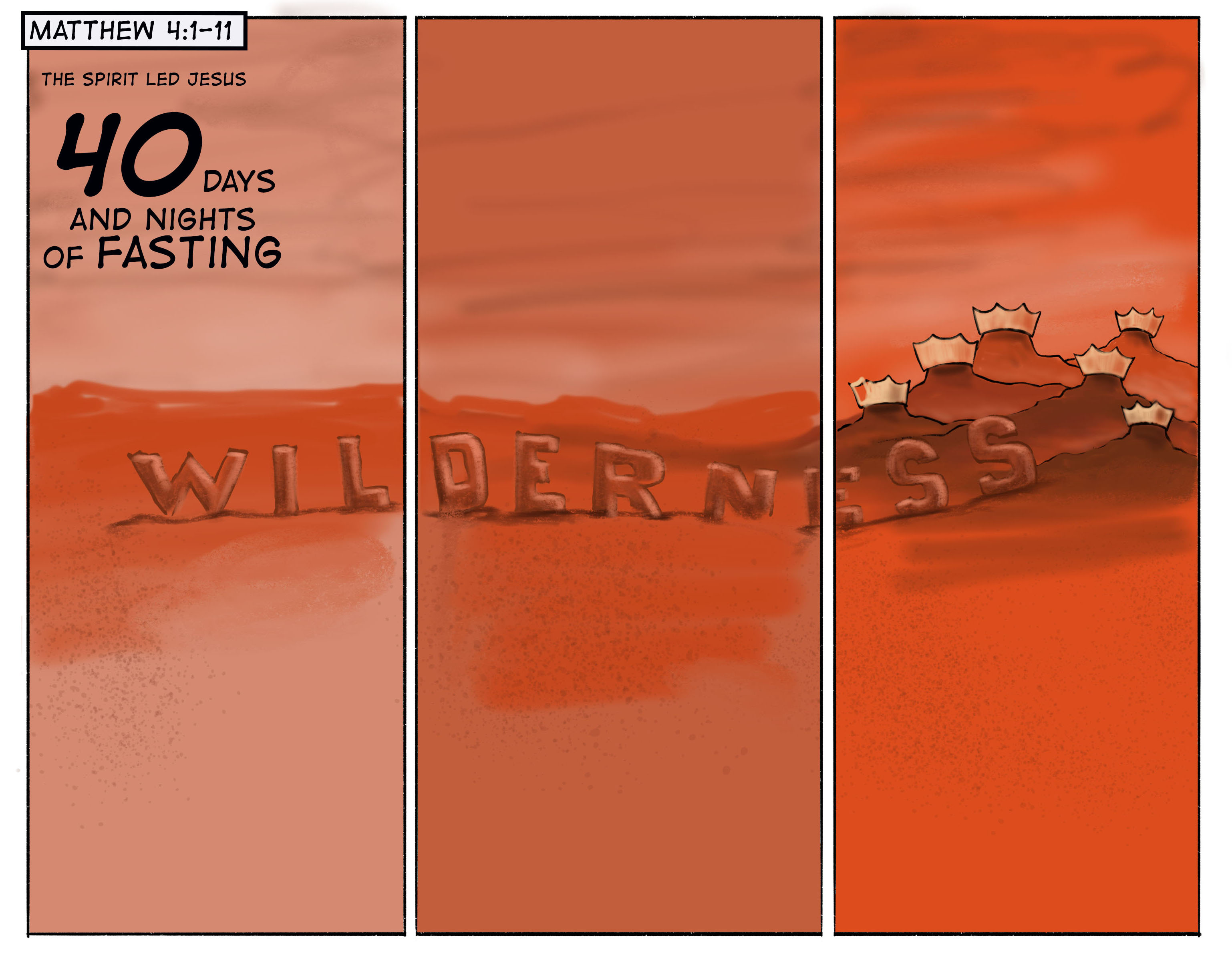
The temptation of Jesus is an important connection to the story of the Exodus. Jesus relives the forty years of wandering in the wilderness that the freed slaves experienced under Moses’ leadership. This Bible Project Video tells the story of the 40 years of wandering.
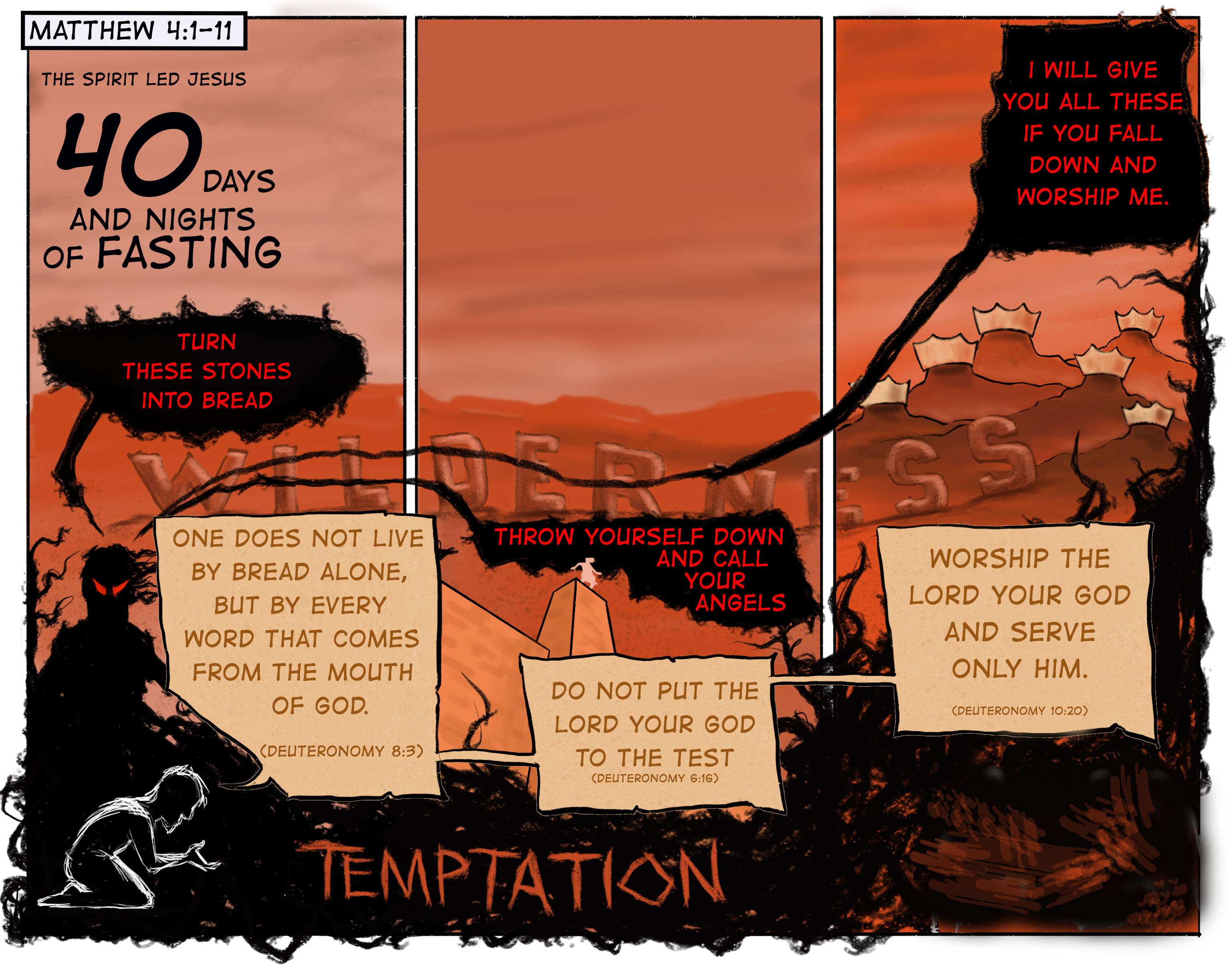
Jesus is tested three times, and, unlike the Israelites, passes each test. He defeats the temptations with scripture and trusts that God will fulfill God’s promises in God’s timing.
Jeannine Brown says,
Although the tendency has been to read this text as an example of divine willpower overcoming diabolic temptation, Matthew instead highlights the comparison between Jesus and Israel, in their respective wilderness temptations. He does this through a threefold reference to Deuteronomy 6-8, which portrays Moses describing Israel’s wilderness wanderings and their consistent disloyalty to Yahweh, their God. In contrast, Matthew narrates that Jesus, in his wilderness experience (4:1), is fully loyal to Yahweh in the face of significant temptation (see commentary).
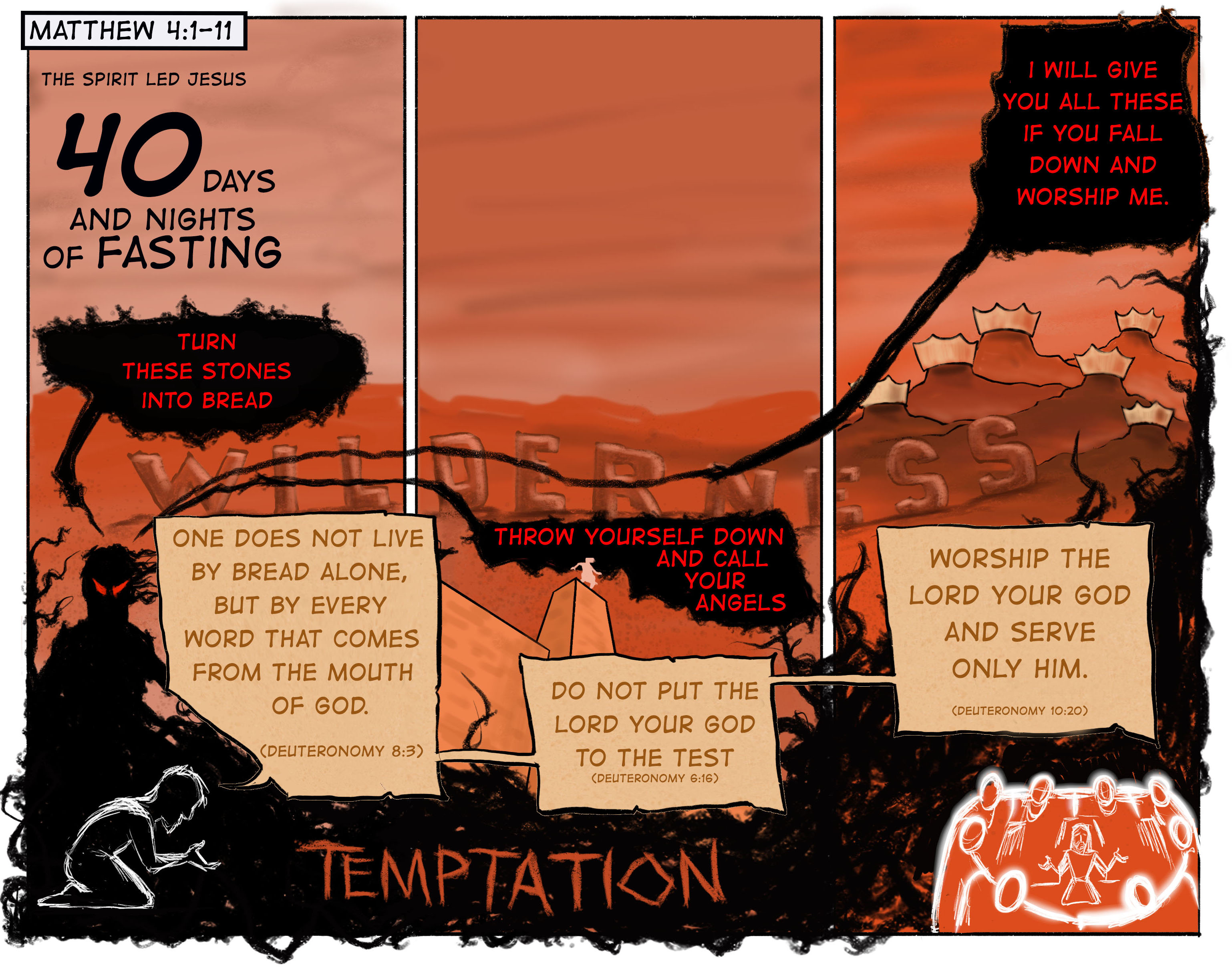
The story ends with Jesus receiving ministry from God’s messengers.
Devos for Matthew 4:1-11


